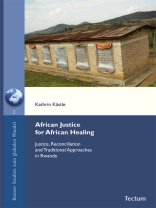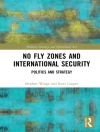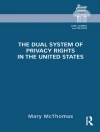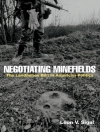To cope with the legacy of the swiftest genocide in human history the largest government-driven reconciliation process worldwide has been taking place in Rwanda over the past years. Dealing with the consequences of violent conflict is an exceptionally difficult task as never before were so many ordinary citizens involved in the killing. Moreover, victims and perpetrators are forced to coexist in the same state and thus need to find a way to come to terms with the past. Drawing on Rwanda’s contested history and the collective myths and chosen trauma that shape the perception of Hutu and Tutsi today this book analyzes the potential for reconciliation through transitional justice 15 years after the genocide. It describes the contributions of the International Criminal Tribunal for Rwanda (ICTR), the national court system and the traditional Gacaca courts to national reconciliation. The authoritarian political climate and the Tutsification of power in contemporary Rwanda serve as the background against which the benefits and weaknesses of the different justice mechanisms are critically examined. The analysis is especially valuable for anyone interested in the specific potential of so-called traditional African justice mechanisms in reconciling societies after violent conflict, and indeed anyone who is interested in the political process of justice and reconciliation.
Kathrin Kästle
African Justice for African Healing [PDF ebook]
Justice, Reconciliation and Traditional Approaches in Rwanda
African Justice for African Healing [PDF ebook]
Justice, Reconciliation and Traditional Approaches in Rwanda
Mua cuốn sách điện tử này và nhận thêm 1 cuốn MIỄN PHÍ!
Ngôn ngữ Anh ● định dạng PDF ● ISBN 9783828852143 ● Kích thước tập tin 1.0 MB ● Nhà xuất bản Tectum ● Thành phố Baden-Baden ● Quốc gia DE ● Được phát hành 2011 ● Phiên bản 1 ● Có thể tải xuống 24 tháng ● Tiền tệ EUR ● TÔI 2508948 ● Sao chép bảo vệ Adobe DRM
Yêu cầu trình đọc ebook có khả năng DRM












